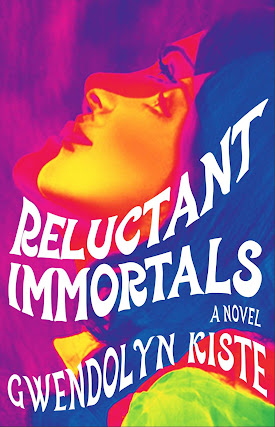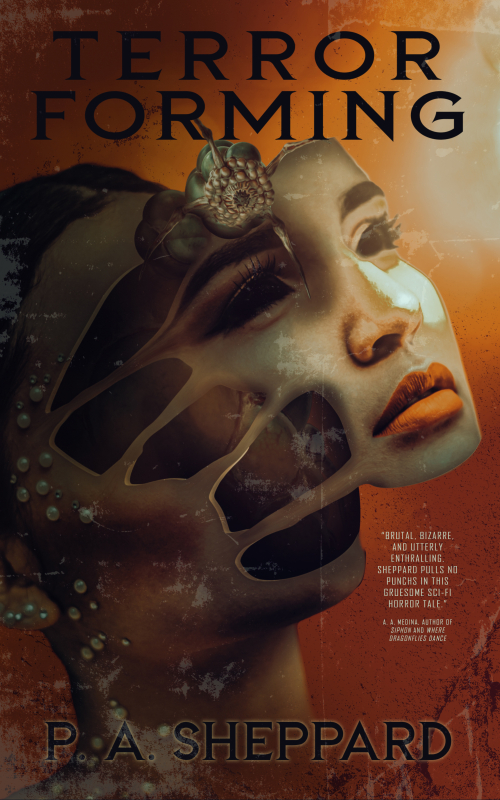What's it Like to be a Slush Pile Reader? But More Importantly, How Can You Impress One?
I recently volunteered to work as a slush pile reader. I did this for a number of reasons.
As an aspiring writer myself I know exactly what it's like to submit work for consideration, to pour over your labour of love, watching your story take shape, take hold and then taking the plunge and sending it out there in the hope of it being accepted for publication. I also love reading, and working as a slush pile reader seemed something fun to do.
I also have to admit that I had a slightly ulterior motive. Working as a slush pile reader would allow me to gain a valuable insight into how publishers select manuscripts.
And I'm going to share my insiders knowledge.
So the good news is that if the publishers are small and independent they're probably run by writers for writers. There's also a very good chance that the slush readers are writers too and have volunteered for the love of reading and to help support their fellow comrades of writing.
For example when undertaking this task, I really wanted to discover a good manuscript as I know how amazing it would be to have your worked plucked out of obscurity and given a chance.
So yes slush pile readers are on your side, they want you to succeed.
How to get your manuscript to stand out to a slush reader?
Titles are everything
In my case, the slush pile was arranged so that slush readers could choose what they wanted to read. That choice was made solely on the strength of the titles of the manuscripts. There was no brief synopsis to inform the reader of the manuscript content so the choice was made only through the strength of title. There were a few that never got picked and unfortunately were probably not read.
So make sure your title is attention grabbing.
Make the first few pages count
Just like with writing a short story or a novel you need to reel your reader in quickly through the deployment of a killer hook.
We were told to read the first ten pages of a manuscript and if by then we were enjoying reading the story we were instructed to read on til fourth chapter and if we were still interested to read on further. Many slush readers volunteer for this meaning this is something they do in their spare time on top of their day jobs and other commitments. The fact is, they're busy people and won't waste their time reading boring manuscripts.
Due to the high number of submissions received it is really important to grab a slush readers' attention as there will be many manuscripts to get through and each slush reader feels it their duty to help sift out great manuscripts and do their bit for the writing community. If they don't feel that your manuscript has potential they'll mark it with a big NO and move on to the next one looking for that elusive bestseller or failing that a darn good read.
What are the common mistakes seen by slush readers?
Incorrect manuscript presentation
This should go without saying but it's a huge problem and unfortunately many manuscripts will be rejected without being read if it does not adhere to manuscript presentation specifications set out by the publishers. Do your homework before sending your work in.
Info dumps
Info dumps are where tonnes of boring information usually of no relevance to the plot is dumped onto a reader causing them to get bored. Background information is vital to any story regardless of genre but there are a variety of ways it can be communicated such as through speech between characters.
Info dumps are commonly seen in the fantasy genres especially when the stories are set in a fictional world or alternative reality. In fiction less can be more, don't give too much away. Your reader will be happy to speculate early on and wait for more information to either back up their theories or form new ones with new information.
So in short make sure that all your background information has direct relevance to your plot.
Too little background information
It is also possible to reveal too little background information that leaves the reader confused and clueless as to what's going on. Whilst it's good to hold back and leave your readers wanting more, you can run the risk of your reader being kept out of the loop and subsequently not feel emotionally involved with the story.
The story is told rather than shown
Admittedly this is hard to achieve, but it really sorts out the wheat from the chaff. In simple terms when a story is told it will read like a news report which contains mostly facts and eyewitness accounts.
Rather than telling us - Julie was scared. You can show it - Julie stood rooted on the spot, trembling with wide eyes, clutching her chest in a bid to keep her heart from jumping out of its ribcage.
Remember us humans have five senses, use them all to make your story come alive, don't make mistake of using just sight, there's also sound, smell, taste and touch to be explored. Explore all of these to make your work standout.
Show don't tell.
An over complicated plot
Plots are best kept simple to allow your reader to sit back and enjoy the story. An ever changing plot is very confusing and frustrating.
A non-existent plot
Without a sustainable plot it's just a series of rambling events with no real significance to the reader or characters.
Snail pace story
The story needs to start straight away. It's very frustrating reading a manuscript patiently waiting for it all to kick off and then getting half way through to realise nothing has happened and you've wasted your time in reading that far.
About the Author
S.J.Budd is a writer of all things weird and creepy. Previously her tales have been featured on Deandman's Tome, Sanitarium Magazine, Dark Gothic Resurrected, Liquid Imagination, Aphotic Realm, Aurora Wolf, Aphelion, Blood Moon Rising Magazine, The Wild Hunt, Danse Macabre, Shadows at the Door, Inner Sins, Bewildering Stories, Siren's Call and many more.
Spells and Persuasions, her debut collection of short stories of horror and dark fantasy is available now in paperback and kindle from Amazon




Comments
Post a Comment